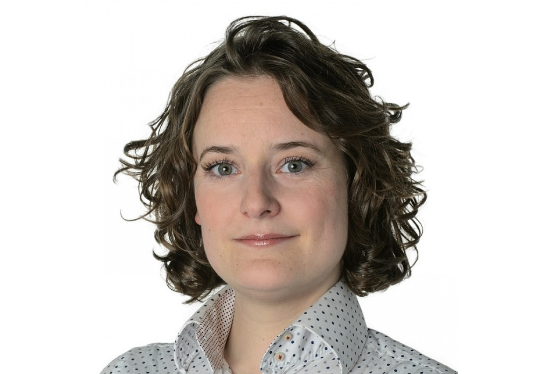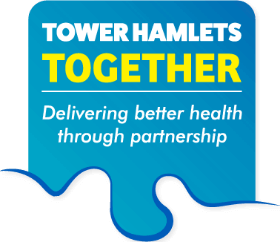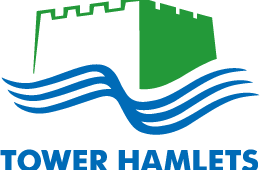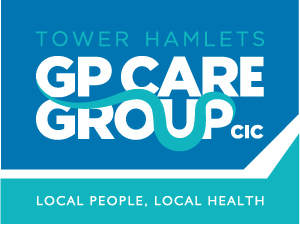Amy's Monthly Briefing - January 2023
The borough’s vision of a seamless health and care experience for its citizens.

I know we face many challenges ahead in 2023, but I am always buoyed by the strong spirit of collaboration and commitment to improving services and outcomes for residents, which shines through all THT conversations, meetings and events
A very belated happy new year to all Tower Hamlets Together partners. I know we face many challenges ahead in 2023, but I am always buoyed by the strong spirit of collaboration and commitment to improving services and outcomes for residents, which shines through all THT conversations, meetings and events.
For me, the year started with interviews for our new Community Voice Lead and I am thrilled that Muna Hassan will be taking on this role and joining the Board in February. We were delighted to have a strong pool of applicants for this role – all local residents with diverse lived and professional experiences of making sure residents voices are heard and acted upon. Muna impressed the panel with her passion for tackling health inequalities, track record of lived experience leadership as Co-Chair of the Somali Working Group, community organising and research background, knowledge of navigating our complex system, and ideas for both short and long-term community engagement initiatives. I can’t wait for her to get started!
I also attended the Health and Wellbeing Board this month, to report back on THT’s priorities. I highlighted our work to transition into taking on the Integrated Care Board functions at Place – including contributing to the new NEL accountability framework; welcoming new Board members such as Healthwatch Tower Hamlets, our Clinical and Care Director, Roberto Tamsanguan, and Primary Care Development Lead, Khyati Bakhai; and recruiting new clinical leads across multiple professional disciplines. I also shared an update on our work to maintain and strengthen community voice and inclusion within the Board and across THT, including ongoing user voice slots, our local investment in the new Community Voice Lead, and our £100k tender for anti-racism education across the partnership, which is now live.
At January’s Board, we considered some urgent system issues, including scarlet fever which is putting extra pressure on services. More generally, we are dealing with an increase in demand for primary care that way outstrips provision – for example, the Urgent Care Centre was built for 180 people a day and we are regularly getting 400+ presenting. The Board agreed there needs to be a deeper conversation about primary care pressures and how the system can respond as a whole.
For the user voice slot, we heard from Spotlight Youth Centre about a range of impressive youth-led initiatives and programmes. These included the bespoke Build-a-Bike Programme, co-designed by young people, a two-day programme that explores cycle maintenance, repairs, security, urban riding and sourcing affordable parts; the Wellbeing Ambassadors, a programme over 12 months with 8 local schools and 24 young people taking part in Peer Mentoring training; and VaxFax UK, where young people co-produced the communications used to engage over 400 peers in sharing their thoughts and feelings about the pandemic and the vaccine. They also highlighted the Youth Empowerment Board at Poplar HARCA for 16-25 year olds, which aims to disrupt and create change. Spotlight shared that the main challenges currently facing young people are mental health and health literacy more generally. The Board tasked the THT team with identifying how Spotlight’s recommendations for change could be taken forward across our different workstreams.
The Board heard an update from NHS North East London ICS, including the expectation that new NHS Operating Guidance for 2023-24 will contain fewer targets for ICSs than previously, that ongoing updates to joint strategic needs assessments are underway, and the ICS financial strategy, operating plan and accountability framework are being further refined.
We also received the quarterly integrated finance report, which continues to show a bleak picture. The NHS is carrying a deficit of £53m but forecasting a break-even position, a huge scale of work will be needed to achieve this. Local authority pressures are largely in adult social care, due to both a higher volume of clients and increased complexity of needs, meaning the cost of care packages is going up. The Board asked for further work to make these reports more integrated and given that pressures are only going to get worse, asked how we can more effectively identify those and consider the impact for THT. We need a local process to test individual financial plans against each other, to compare savings and review the system impact. Each Place should have a finance, planning and performance forum to do this detailed work and report into the partnership Board. We agreed this urgently needs to be created, given the acute pressures on finances and demand.
Finally, we had an initial update on the Fuller report, which sets out a new vision for integrating primary care and improving access, experience and outcomes for residents across three areas: (1) streamlining access to care and advice for people who get ill but only use health services infrequently; (2) providing more proactive, personalised care with support from a multidisciplinary team of professionals to people with more complex needs, including those with multiple long-term conditions; (3) helping people to stay well for longer as part of a more ambitious and joined-up approach to prevention. Implementation of Fuller will be a key programme across THT and NEL this year, so we plan to consider it in more depth at a future THT Board.








